You know the meme – when you work with bad guys, you should expect to be labeled a bad guy. I mean no disrespect to the thousands of Chinese companies doing business across the world that manage to be profitable without intimate Chinese government relations. But in our globalized, internet era, it is impossible for a high tech company, particularly one as fundamentally important to internet networks, to not be tarnished with the specter of theft of intellectual property and CCP internet control and monitoring of Chinese businesspeople, students, even foreigners.
Probably no one outside a small group of analysts has the actual evidence of real dirt on Huawei. But that is the risk of being a national champion in China. If the government is promoting you, then there must be a government interest in promoting you, beyond just “go team.” This is simply Chinese practical reasoning.
But it seems that lying down with dogs is more than just a saying here. In his extraordinary Sinocism news blog, Bill Bishop continues the Huawei stories. From the February 9 edition, with no repetition in the stories (all should be clickable) –
1. Huawei’s bad start to the Year of the Pig
Trump likely to sign executive order banning Chinese telecom equipment next week – POLITICO:
President Donald Trump is expected to sign an executive order, banning Chinese telecom equipment from U.S. wireless networks before a major industry conference at the end of February, three sources told POLITICO.
The administration plans to release the directive, part of its broader effort to protect the U.S. from cyber threats, before MWC Barcelona, formerly known as Mobile World Congress, which takes place Feb. 25 to Feb. 28.
Mobile network operator’s body GSMA considers crisis meeting over Huawei | Reuters:
Mobile communications industry body GSMA has proposed its members discuss the possibility that Chinese network vendor Huawei [HWT.UL] is excluded from key markets, amid concerns such a development could set operators back by years…
GSMA Director General Mats Granryd has written to members proposing to put the debate around Huawei onto the agenda of its next board meeting, a spokesman for the federation told Reuters on Saturday.
The meeting will be held in late February on the sidelines of the Mobile World Congress, the industry’s biggest annual gathering, in Barcelona.
Trump envoy urges Europe to ‘link arms’ against China – POLITICO:
Describing China’s influence as “malign,” Gordon Sondland, the U.S. ambassador to the European Union, told POLITICO that his country and the EU should overcome their current trade tensions and join forces against the Chinese.
“We should … combine our mutual energies — we have a $40 trillion combined GDP, there is nothing on the planet that is more powerful than that — to meet China and check China in multiple respects: economically, from an intelligence standpoint, militarily,” he said in an interview.
“That’s where the EU and U.S. really should be linking arms,” Sondland continued, advocating for “a quick resolution that would move our trade relationship in the right direction so that we can both turn toward China, which is really the future problem in multiple respects.”
Huawei Deals for Tech Will Have Consequences, U.S. Warns EU – Bloomberg:
“There are no compelling reasons that I can see to do business with the Chinese, so long as they have the structure in place to reach in and manipulate or spy on their customers,” Ambassador Gordon Sondland, Trump’s envoy in Brussels, said Thursday in an interview. “Those who are charging ahead blindly and embracing the Chinese technology without regard to these concerns may find themselves in a disadvantage in dealing with us.”
Huawei representative rebukes US ambassador’s accusation, defends integrity and safety – China Daily:
“Recently, Huawei has been under constant attack by some countries and politicians. We are shocked, or sometimes feel amused, by those ungrounded and senseless allegations,” said Abraham Liu, Huawei’s vice-president for the European region and chief representative to the EU institutions.
“For example, yesterday, the US ambassador to the European Union, Mr (Gordon) Sondland, said (that) someone in Beijing (could) remotely run a certain car off the road on 5G network and kill the person that’s in it. This is an insult to people’s intelligence, let alone the technological experts across the world,” Liu said.
Chinese firm Huawei blocked from ‘sensitive state projects’ and 5G amid security concerns-The Sun:
New laws on foreign investment in the UK will block Chinese firm Huawei from sensitive state projects, The Sun can reveal… senior Cabinet ministers and Britain’s most senior civil servant Mark Sedwill fear Huawei’s involvement in such critical infrastructure could jeopardise national security.
They are planning reforms to allow the Government to ban Chinese firms like Huawei from future involvement in “strategically significant” UK tech projects.
Huawei Says U.K. Software Issues Will Take Years to Fix – WSJ $$:
The telecom giant also said in a letter to the U.K. Parliament that its board of directors has signed off on a companywide overhaul of its software engineering, budgeting $2 billion over five years for the effort..
German ministers meeting to discuss how to deal with Huawei in 5G auction: source | Reuters:
Chancellor Angela Merkel said on Tuesday that Germany needed guarantees that Huawei would not hand over data to the Chinese state before the telecoms equipment supplier can participate in building its 5G network.
German newspaper Handelsblatt said Wednesday’s meeting would focus on whether a security catalog, prepared by the Federal Network Agency and the cyber defense agency (BSI), along with certification rules and a no-spy agreement with China, would be enough to ensure future 5G mobile networks are safe.
Norway’s PST warns against Huawei – Newsinenglish.no:
Justice Minister Tor Mikkel Wara of the Progress Party, who joined Bjørnland at Monday’s PST briefing, later announced that measures would be introduced to reduce the vulnerability of the Norwegian network. The goal is to hinder Norway’s large mobile operators Telenor, Telia and Ice from choosing equipment suppliers that could threaten the nation’s and their users’ security. Huawei is the prime target.
China hacked Norway’s Visma to steal client secrets: investigators | Reuters:
Hackers working on behalf of Chinese intelligence breached the network of Norwegian software firm Visma to steal secrets from its clients, cyber security researchers said, in what a company executive described as a potentially catastrophic attack.
The attack was part of what Western countries said in December is a global hacking campaign by China’s Ministry of State Security to steal intellectual property and corporate secrets, according to investigators at cyber security firm Recorded Future.
China says it is not a threat to Norway, denies cyber espionage | Reuters:
“China poses no threat to Norway’s security. It’s very ridiculous for the intelligence service of a country to make security assessment and attack China with pure hypothetical language,” the Chinese Embassy in Oslo said in a statement on its website.
Huawei Threatens Lawsuit Against Czech Republic After Security Warning – The New York Times:
The warning, which carries the force of law, requires all companies in the Czech Republic that are deemed critical to the nation’s health to perform a risk analysis that takes security concerns into account.
China denies ‘ridiculous’ spying allegations by Lithuania | AFP:
Earlier in the week, two Lithuanian intelligence agencies condemned China for an “increasingly aggressive” spy campaign, which they said included “attempts to recruit Lithuanian citizens”.
Darius Jauniskis, head of Lithuania’s State Security Department, said his agency was analysing the potential “threat” posed by Huawei, whose technology is being used to build the EU and Nato state’s new 5G telecommunications infrastructure.
Huawei offers to build cyber security center in Poland | Reuters:
Italy denies it will ban Huawei, ZTE from its 5G plans | Reuters:
Thailand launches Huawei 5G test bed, even as U.S. urges allies to bar Chinese gear | Reuters:
Stanford halts research ties with Huawei amid surveillance controversy – The Stanford Daily
Vermont phone carriers in dispute over concerns about Chinese firm Huawei – VTDigger
2. FBI raids Huawei’s San Diego offices
This is a damning story. One argument some defenders of Huawei have used is that the firm’s culture has changed since inception and while it committed an “original sin” of IP theft in its early years now that it is a global tech firm its behavior has changed. This story destroys that argument.
Huawei Sting Offers Rare Glimpse of U.S. Targeting Chinese Giant – Bloomberg:
Diamond glass could make your phone’s screen nearly unbreakable—and its inventor says the FBI enlisted him after Huawei tried to steal his secrets…
The first sign of trouble came two months later, in May, when Huawei missed the deadline to return the sample. Shurboff says his emails to Han requesting its immediate return were ignored. The following month, Han wrote that Huawei had been performing “standard” tests on the sample and included a photo showing a big scratch on its surface. Finally, a package from Huawei showed up at Gurnee on Aug. 2. ..
Shurboff says he knew there was no way the sample could have been damaged in shipping—all the pieces would still be there in the case. Instead, he believed that Huawei had tried to cut through the sample to gauge the thickness of its diamond film and to figure out how Akhan had engineered it. “My heart sank,” he says. “I thought, ‘Great, this multibillion-dollar company is coming after our technology. What are we going to do now?’”..
The FBI raided Huawei’s San Diego facility on the morning of Jan. 28. That evening, the two special agents and Assistant U.S. Attorney Kessler briefed Khan and Shurboff by phone. The agents described the scope of the search warrant in vague terms and instructed Khan and Shurboff to have no further contact with Huawei.
———-
It is an old truism that China tends to be tone deaf in dealing with foreigners, particularly on foreign policy issues. So we find no small sense of irony in the story from Reuters last week Huawei Offers to Build Cyber-security Center in Poland – “China’s Huawei has offered to build a cyber security center in Poland where last month authorities arrested a Chinese employee of the telecommunications firm along with a former Polish security official on spying charges.”
One of the stories circulating in the past couple of years is that Huawei might have stolen some technology early in its life, but those days are over now, all is in the past, now we are in a new era. Stories from the bad old days – In 2002, Cisco Systems Inc. accused (Huawei) company of stealing source code for its routers. Motorola said in a 2010 lawsuit that Huawei had successfully turned some of its Chinese-born employees into informants. And in 2012 the U.S. House Intelligence Committee labeled Huawei a national security threat and urged the government and American businesses not to buy its products. Huawei denied all the claims. The Cisco and Motorola lawsuits ended with settlements.
For anyone still unsure of the extent of Huawei espionage or theft, there is this Bloomberg story – Huawei Sting Offers Rare Glimpse of the US Targeting a Chinese Giant. This story is about a small American company creating a “diamond glass” computer screen that would be stronger than anything now on the market. The diamond glass story is about an IP theft from last August.
The detention of Meng Wanzhou, originally on charges of violating economic sanctions against Iran by using a shell company to get around restrictions, now seems less of a political stunt. From the Chinese foreign ministry – “For a long time, the U.S. has used state power to smear and attack certain Chinese companies in an attempt to stifle legitimate business operations … Behind that, there is strong political motivation and manipulation. We strongly urge the U.S. to stop unreasonable suppression of Chinese companies, including Huawei, and treat Chinese enterprises fairly and objectively.”
Un huh. One can only hope that Huawei is not treated as “fairly and objectively” as Trump treated ZTE.

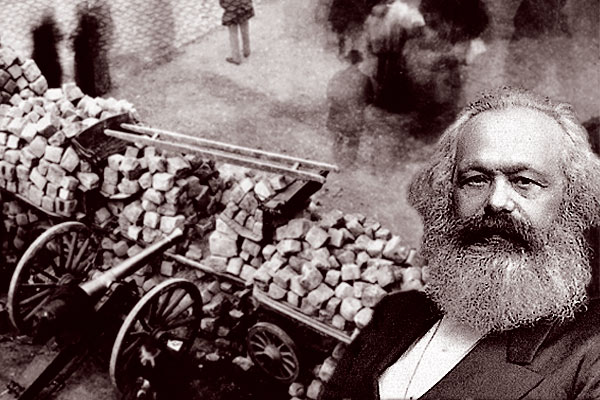
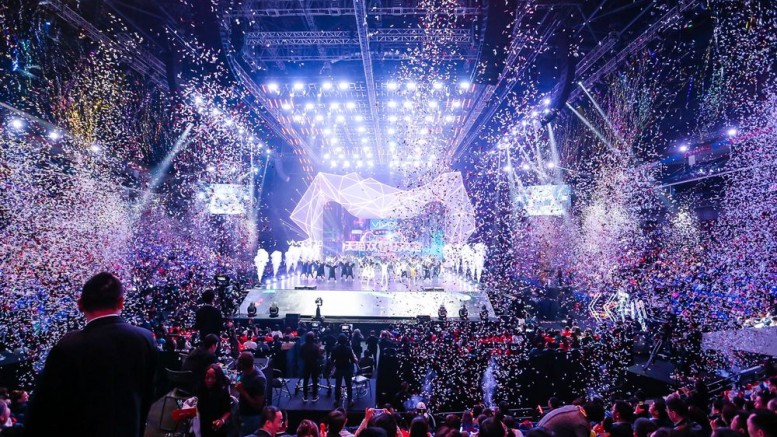 Source:
Source: 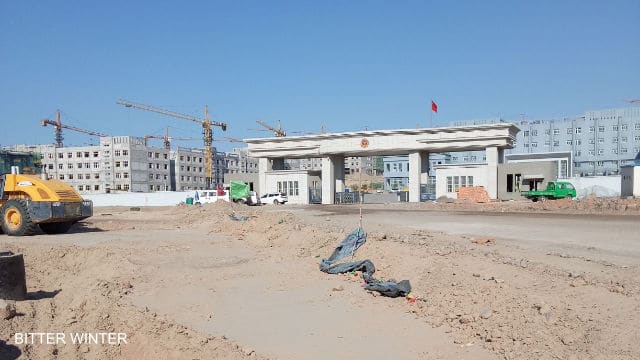 External view of a Xinjiang “transformation through education” camp during construction Source:
External view of a Xinjiang “transformation through education” camp during construction Source: 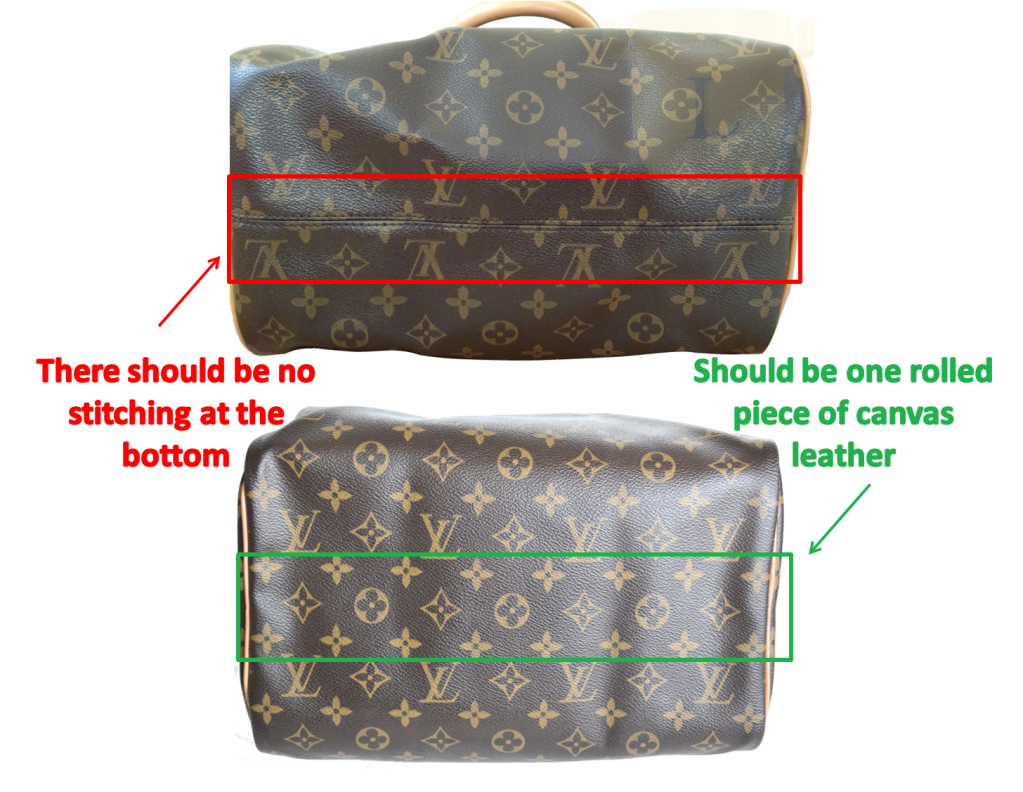
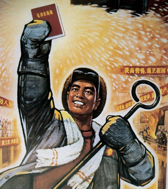
 Source:
Source: 
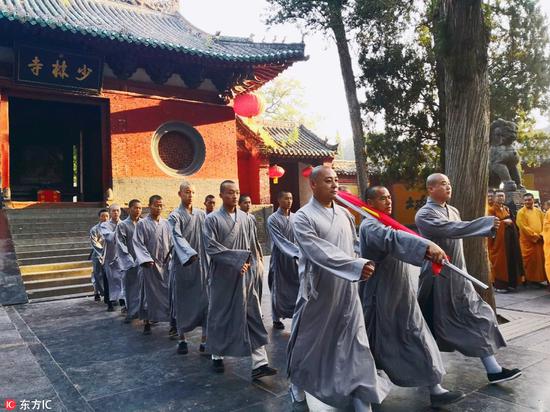 All photos:
All photos: 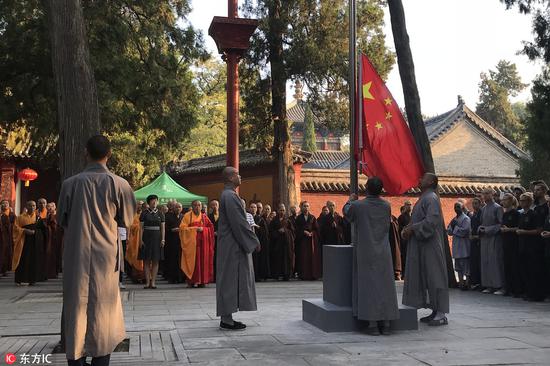
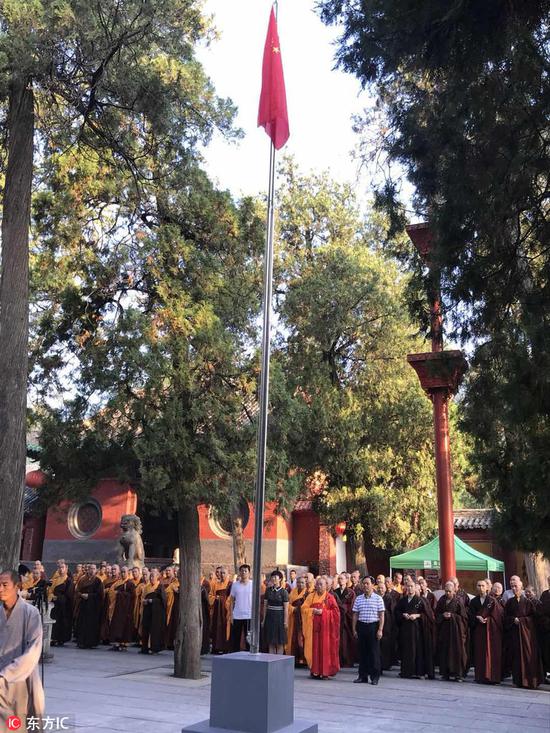

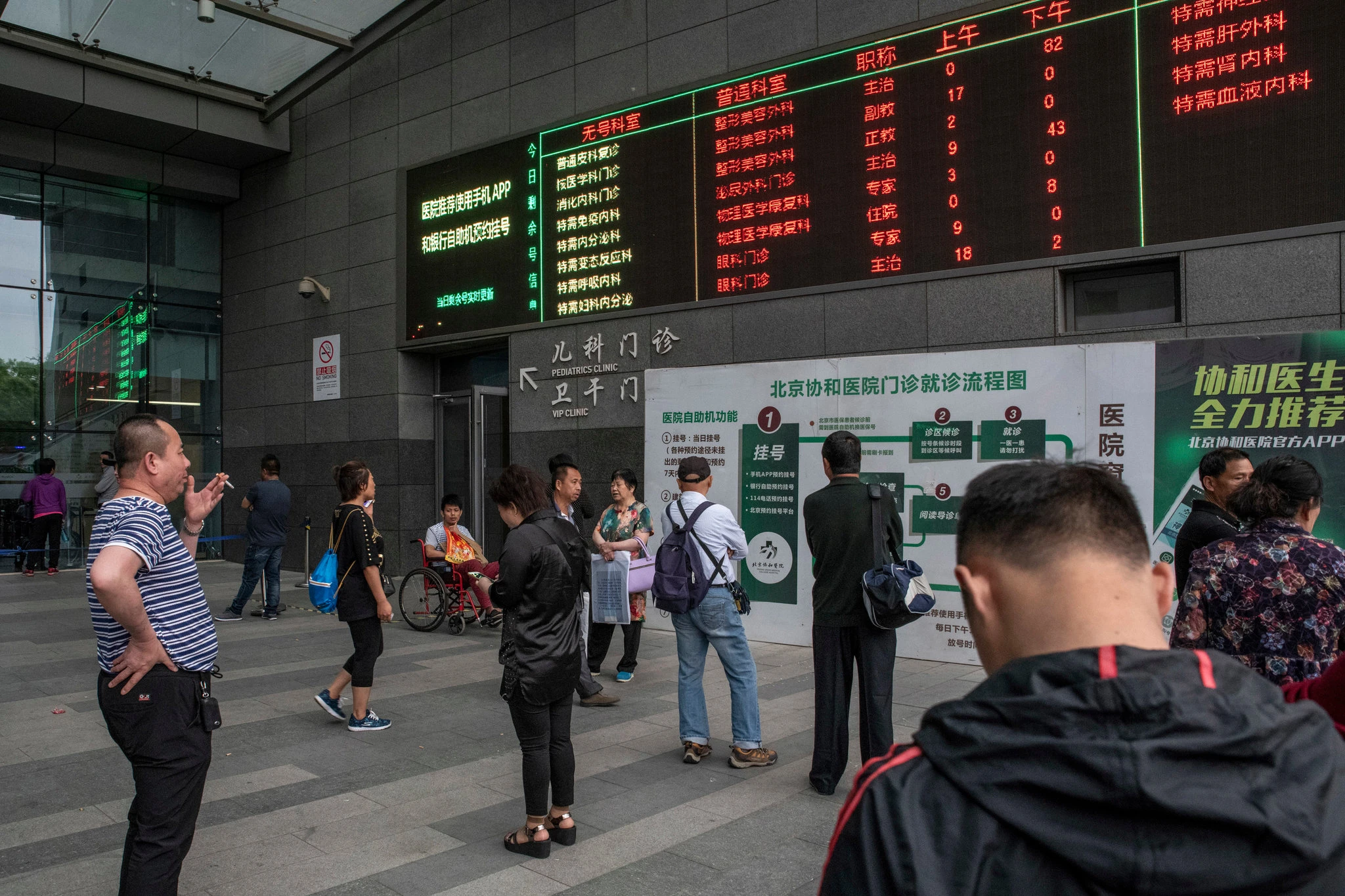

What Chinese are talking about … fake news
Some economic development issues are similar around the world. An American local government, faced with declining tax base, ageing population, loss of markets, and little ability to change the course of history is faced with tough choices. New Zealand is in a similar spot, with respect to China and the English-speaking west. But American local governments usually don’t have to deal with fake news stories planted by enemies in the town next door.
Url for the New Zealand Herald article –
https://www.nzherald.co.nz/nz/news/article.cfm?c_id=1&objectid=12205347&ref=clavis